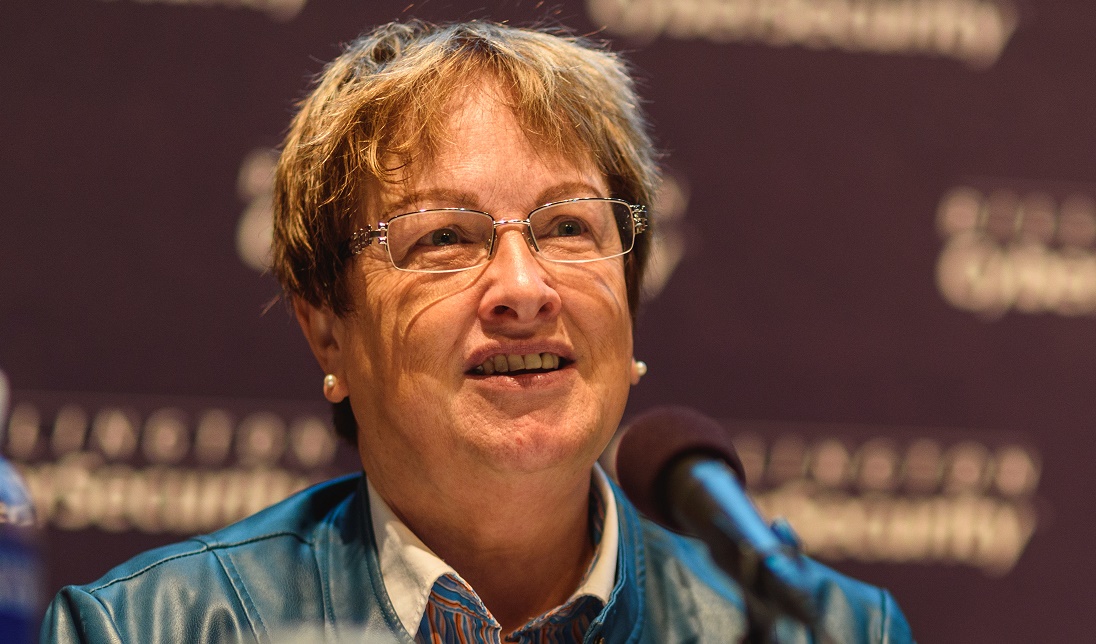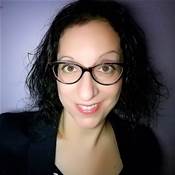Welcome to a new series that showcases some of Australia’s innovators, movers and shakers in and around ICT.
This week, we talk to Professor Jill Slay.
Are you in your mid-40s, looking for a career change, and want to save the world?
You are the perfect candidate for a cybersecurity role, according to Professor Jill Slay.
Slay should know. She is the Director of the Australian Centre for Cyber Security (ACCS) at UNSW Canberra.
Her job? To protect Australia from the bad guys.
In the early 2000s, Slay was a researcher in information security at the University of South Australia when she was approached by SA Police for assistance with cases involving computers and tech devices.
“I said ‘You teach me about crime and I’ll teach you about computers’,” she recalls.
“This is what motivates me: bad guys use computer systems to do bad things. So I thought, why don’t I help law enforcement to be one step ahead of the bad guys; to work out what they’re going to do with the technology, and then help police by developing software -- to be able to get evidence from a device so they can take the bad guy to court and put him in prison.”
Today, Slay is one of the best-known cybersecurity experts worldwide. She’s often referred to as a pioneer of cybersecurity in Australia.
“I’m a pioneer in the sense that I’m actually trying to produce output for industry,” she says. “I’m trying to make the country safer. I’m trying to protect us from a Cyber 9/11.
“Before 9/11, I was working on culture and terrorism. I was already saying different cultures and different belief systems will make people do very strange things with technology. With cyber terrorism, we’re seeing technology – which is divined for a good purpose – constantly being used negatively."
After 12 years of at the University of South Australia, Slay took long service leave and ended up in Namibia for two years as the Dean of IT at the Polytechnic of Namibia (now known as Namibia University of Science and Technology).
“I was able to do crazy things like help train the Namibian army and give advice to the Minister of ICT,” she says. “Namibia a country that is trying to be developed but it’s also very poor. So, while on one hand while you’re trying to teach them about high-tech stuff, 200 kilometres down the road, they’re dying of hunger. That is a very weird situation to live in.”
But Australia soon beckoned and Slay was back setting up ACCS in Canberra which now serves the Australian Government and Defence Forces, as well as offering a range of Masters and PhD courses.
Slay says a lot of young people come through her courses but that her greatest joy is taking those who are mid-career and transforming their work life.
“I’m really at my happiest when I take professionals who are coming up to about 40, who already have deep knowledge in a technological area, and I help them develop their career in such a way that they research their own workplace problems. And they can go on to lead others to do that.”
Internationally, Slay says, the world will have a shortage of cybersecurity professionals in the realm of 1.3 million by 2020, a figure that “definitely” concerns her.
Professionals already in the workforce are a prime market to fill some of these roles which is why Slay has devised a Masters degree for those looking to transition careers.
“Don’t be lead down a path we’re you’re lead to believe you have to be super mathematical or a fantastic programmer to be able to have a cybersecurity career.
“You can make a cybersecurity degree as technical or non-technical as you want to, so the foundations could easily be computer science or IT. They could be electronics or electrical engineering. It could be a TAFE diploma or a law degree – you have lots of entries into a cybersecurity career.”
What you absolutely must have, Slay says, is passion.
“My advice would be that cybersecurity is not just technical, so if you want to advance in this career, you need to be passionate about securing society from crime and terrorism and warfare.
“Cybersecurity is essentially about risk and managing the risk of bad guys taking over our systems.”
In 2011, Slay was recognised for her immense contribution and made a Member of the Order of Australia (AM) for her ‘service to the information technology industry through contributions in the areas of forensic computer science, security, protection of infrastructure and cyber-terrorism.’
“My latest interest is the Internet of Things (IoT), which means the connection of every kind of device to the internet. As soon as we do that, the bad guys are going to work out how to use all those devices for crime. I’m looking at developing a forensics framework for Denial of Service attacks using IoT.”
When she’s not knee-deep in cybersecurity, Slay enjoys growing her own vegetables, taking part in FitBit competitions, learning languages, and travelling the world with her husband (a fellow engineer) to visit her four children and eight grandchildren sprinkled around the globe.
“I’ve always had a very busy life,” she says.
Throughout most of her career, Slay has been a member of ACS and says it has been invaluable.
“I have seen ACS as the place where I could apply my knowledge of skills, more to help the profession.
“My involvement has really been the accreditation,” she says. “I enjoy going out and doing and accreditation visits, developing curriculum according to ACS standards, and getting to know other professors who have been involved.”
“I’m a person that always wants to fix things, to make sure that what universities are offering are appropriate for the students. I quite like being the person who comes along with the standards. I want to be part of the ACS that does that for the profession because otherwise we’re never going to improve.”
Jill Slay is a Fellow of ACS and an ACS Certified Professional.










.jpg.transform/320x180/img.jpg)